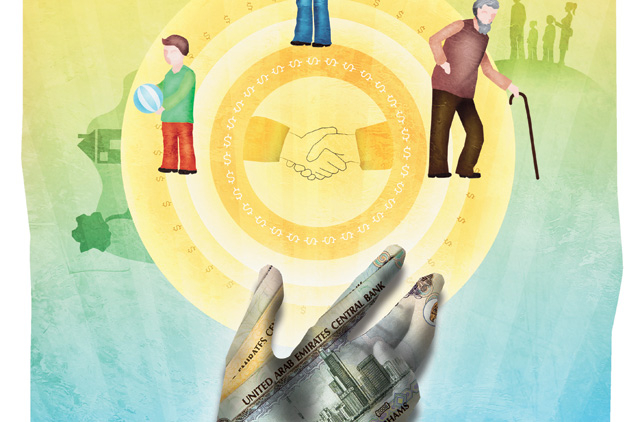If you have dependents, you may often wonder how they will do in case you’re unable to provide for them or if you die. As unpleasant as this thought might be, it is critical that you don’t overlook it. In fact, there are many actions you can take to ensure that their future is secured if they lose you.
Even if you’re living paycheck to paycheck, a careful consideration of your finances can help you ensure that your dependents, family and children, are taken care of. Here are few main points to consider.
Life insurance
This is the first step and it could be a major source of long-term relief for your dependents. If you get your life insurance early on in life when you’re relatively young and healthy, you can lock in a low premium for a whopping payment. Term life insurance — 30 years for example — will cover your children until they are old enough to be self-sufficient.
Your employer may provide life insurance, but that is unreliable because it would be only available to you while you’ve a job with this employer. If you quit or get fired, you wouldn’t have any coverage and so would not your family and dependents.
So make sure you research and acquire your own life insurance that you hold regardless to your work status and location. Having said that, if you’re planning to buy life insurance in a place where you are transient, check the reviews of your providers to ensure that you will be able to pay your premiums easily, and your dependents will be able to claim it, if needed, even if they are overseas.
Finally, think of the beneficiaries of your life insurance. Will the money go to your spouse? Who are your contingent beneficiaries? In some cases, you may want to establish a trust fund for your minor children, which may require legal help.
Make a will
Making a will helps your dependents access your estate quicker and more efficiently. In most cases, it is best to work with a lawyer who is familiar with the local regulations, especially if you’re an expatriate or you don’t feel comfortable going through the process yourself. Make sure that your will is authenticated in a way that makes it applicable wherever you may go.
Generally, your will should go in as many details as you could. But by doing so, you also must be committed to updating it periodically if your situation changes significantly. For example, a divorce or having a child can be a major change that requires you to revisit your will.
The costs of an attorney are a small price for the peace of mind you get from having a will and the hassle your family would be saved in case of your death. Just make sure you do it right, and you let someone know that it exists and where.
Have your finances in order
If you’re responsible for a family, try to keep your financial life in order. Of course, everyone aspires to keep finances in order. But if you’re your family’s primary breadwinner, you must try to stay afloat, out of debt and even put some savings aside. Life insurance — when it comes — can cover so much for a family, especially if you’ve children. Having a cushion of savings can help in the interim and beyond.
In addition, make sure that your finances can be found and tracked by your spouse or other family members in case of your death. This doesn’t mean you should give a distant cousin the password to your payroll account. All you need to do is to have some filing or documentation of your bank accounts, investments, debts, etc.
Of course, if you have a spouse or a trustworthy sibling or other family member, do share this information. The reason is: In case of your death, your family is likely to be scrambling, and you can help — even if you’re not there — by leaving them an organised financial picture that they can figure out quickly.
Prepare for the worst
Leave your dependent with a secured future
Buy your own life insurance
Create a will that travels with you
Stay financially healthy and organised
The writer, a former Gulf News Business Features Editor, is a Seattle-based editor.










